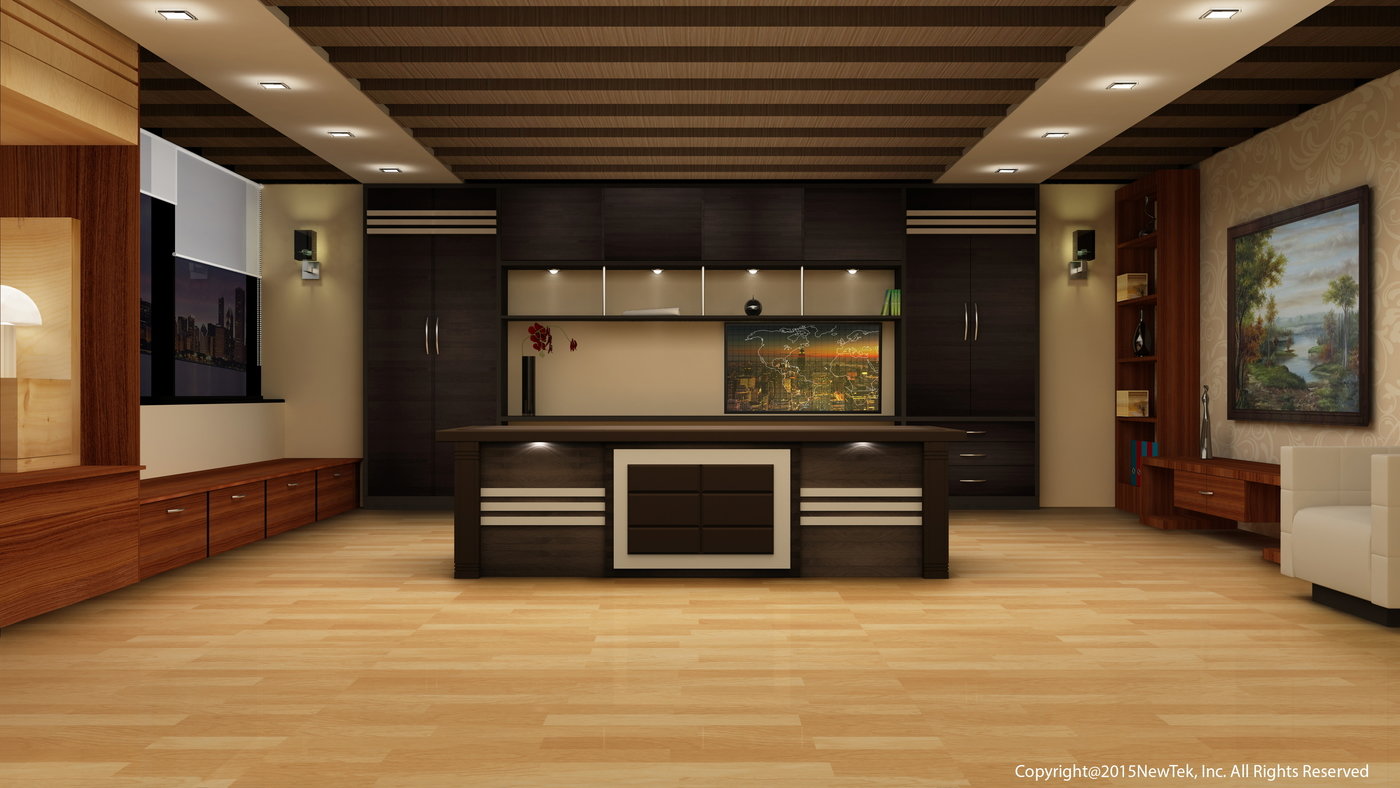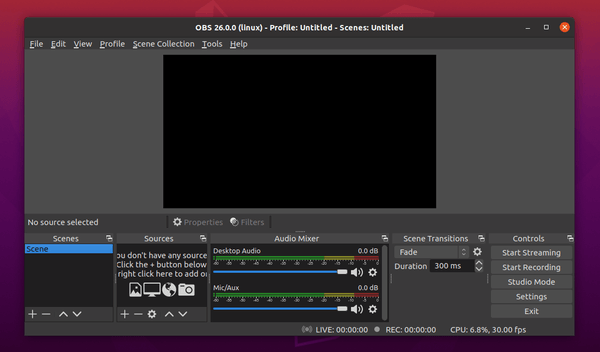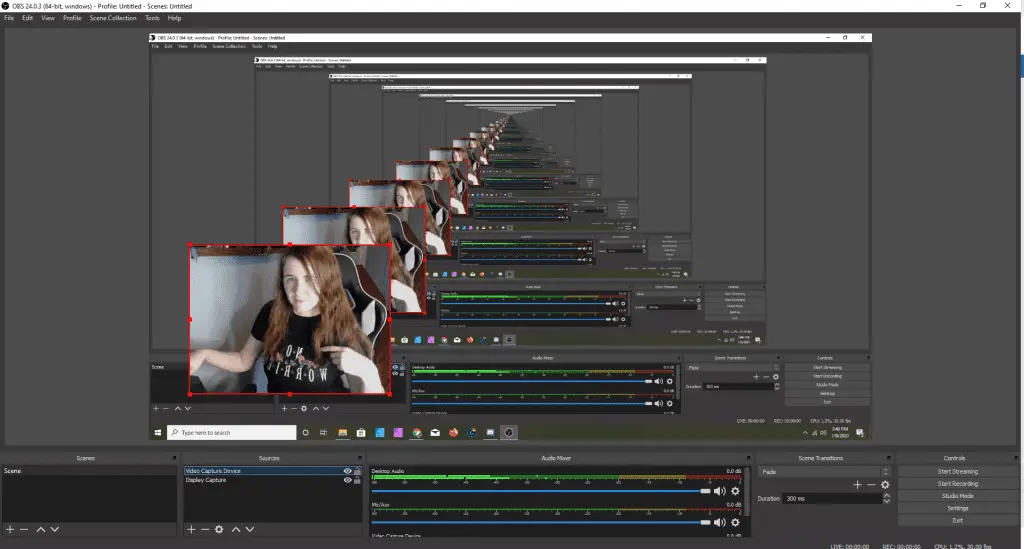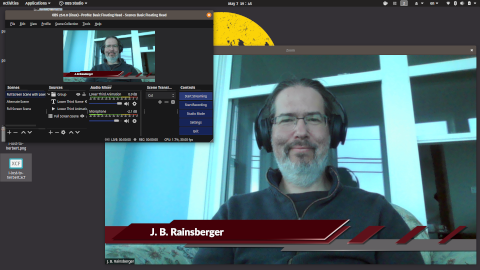Today, where telecommuting and online video conferences have become commonplace, having a good webcam is the key to make a good impression on those who watch you online. OBS Studio addresses your real-time streaming needs, but what if your webcam doesn’t produce decent-quality footage, or you just don’t have one? This article will offer an easy-to-follow guide to convert your camera into a webcam to use with OBS Studio. There are two methods that can help you turn your camera into a webcam.
Obs Studio Virtual Camera
OBS (Open Broadcaster Software) is free and open source software for video recording and live streaming. Stream to Twitch, YouTube and many other providers or record your own videos with high quality H264 / AAC encoding. If you open OBS and Start Virtual Output before using your 3rd party software, the virtual webcam will set the obs setting as a default setting.Otherwise the default setting of virtual webcam will be 1920x1080 @ 30fps Is it possible to output with portrait resolution (like 1080x1920)?
Using an External Capture Card
In this method, you connect your camera to your computer using a capture card and send the footage to OBS Studio as a source. The following equipment is necessary for this method to work.
Connect the Camera to Your System

Once you have managed to gather all these components, plugging your camera into your computer shouldn’t be difficult. The procedure involves running an HDMI or SDI cable from the camera to the capture card. Plug the USB out connection of the capture card to one of the USB ports on your computer, let OS detect and install the required drivers. Once you have successfully connected your camera to your system, perform the following steps.

Add the Camera to OBS Studio
You have plugged your camera into your system by following the above process. Focus stacking in affinity photo. Now, you will need to add the camera to your OBS Studio application. The steps are as follows.

Using a Virtual Camera Plugin
If you want to turn your camera into a webcam without using any additional hardware, that is possible too. You can use certain third-party applications to make your camera available within OBS Studio. Most modern cameras offer a sort of tethering feature via USB. You can connect your camera to your system using a USB cable and then install a suitable software that works well with OBS Studio.
The additional plugin program offers virtual webcam functionality to accept the footage from your camera and provides it to OBS as a source. There are various virtual camera plugins available on the internet for both Windows as well as Mac systems. When you have the right OBS settings in place and the virtual camera plugin functioning properly, you should be able to transmit the footage from your camera to OBS Studio.
Apps4Rent Helps You Boost OBS Studio’s Performance
OBS Studio is a robust program that allows you to improve its capabilities in numerous ways. This free and open-source software can pair up with tons of other software and hardware components to help you record, store, or live stream your productions. However, a local installation can hinder its functionality and affect its performance, especially when it is configured with third-party plugins or external devices. A no comments Today, where telecommuting and online video conferences have become commonplace, having a good webcam is the key to make a good impression on those who watch you online. OBS Studio addresses your real-time streaming needs, but what if your webcam doesn’t produce decent-quality footage, or you just don’t have one? This article will offer an easy-to-follow guide to convert your camera into a webcam to use with OBS Studio. There are two methods that can help you turn your camera into a webcam. In this method, you connect your camera to your computer using a capture card and send the footage to OBS Studio as a source. The following equipment is necessary for this method to work. Once you have managed to gather all these components, plugging your camera into your computer shouldn’t be difficult. The procedure involves running an HDMI or SDI cable from the camera to the capture card. Plug the USB out connection of the capture card to one of the USB ports on your computer, let OS detect and install the required drivers. Once you have successfully connected your camera to your system, perform the following steps. You have plugged your camera into your system by following the above process. Now, you will need to add the camera to your OBS Studio application. The steps are as follows. If you want to turn your camera into a webcam without using any additional hardware, that is possible too. You can use certain third-party applications to make your camera available within OBS Studio. Most modern cameras offer a sort of tethering feature via USB. You can connect your camera to your system using a USB cable and then install a suitable software that works well with OBS Studio. The additional plugin program offers virtual webcam functionality to accept the footage from your camera and provides it to OBS as a source. There are various virtual camera plugins available on the internet for both Windows as well as Mac systems. When you have the right OBS settings in place and the virtual camera plugin functioning properly, you should be able to transmit the footage from your camera to OBS Studio. OBS Studio is a robust program that allows you to improve its capabilities in numerous ways. This free and open-source software can pair up with tons of other software and hardware components to help you record, store, or live stream your productions. However, a local installation can hinder its functionality and affect its performance, especially when it is configured with third-party plugins or external devices. A 
Using an External Capture Card
Obs Camera Freezing
Connect the Camera to Your System
Add the Camera to OBS Studio
Using a Virtual Camera Plugin

Obs Camera Frame
Apps4Rent Helps You Boost OBS Studio’s Performance
Obs Camera Plugin
